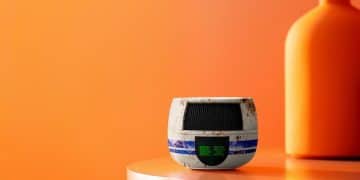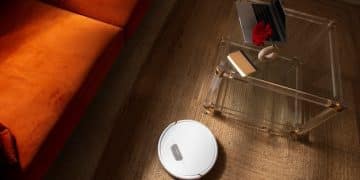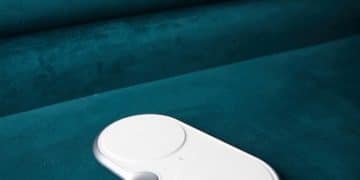Fitness Tracker Sleep Accuracy: A Lab Test Comparison
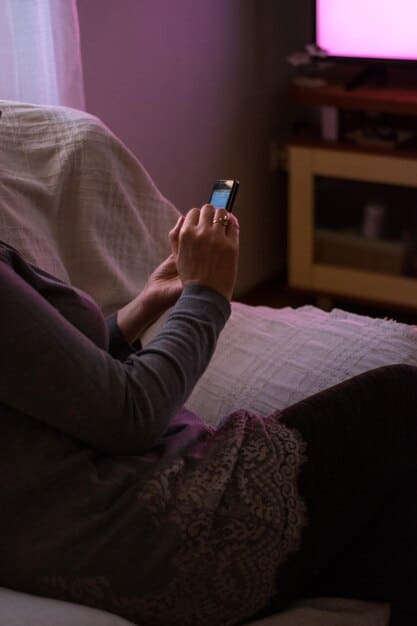
The product review: does this new fitness tracker accurately measure your sleep? We compared it to a lab test to find out if its sleep tracking features live up to the hype.
Are you tossing and turning, wondering if your fitness tracker is truly capturing your sleep quality? Our in-depth product review: does this new fitness tracker accurately measure your sleep? We compared it to a lab test to see if this device is a dream or a nightmare.
Unveiling the Truth Behind Fitness Tracker Sleep Data
Fitness trackers have become ubiquitous, promising insights into our daily activity levels and sleep patterns. However, the accuracy of their sleep tracking capabilities is often questioned. This section will explore the common methods used by fitness trackers to monitor sleep and discuss the potential limitations of these technologies.
How Fitness Trackers Monitor Sleep
Fitness trackers primarily rely on actigraphy, which measures movement to estimate sleep stages. By detecting changes in motion throughout the night, the device attempts to differentiate between periods of wakefulness, light sleep, deep sleep, and REM sleep.
Limitations of Actigraphy
While actigraphy can provide a general overview of sleep patterns, it’s not as precise as polysomnography, the gold standard for sleep evaluation performed in a lab. Actigraphy may struggle to accurately identify specific sleep stages, especially differentiating between light and deep sleep. Factors like restless leg syndrome or other movements during sleep can also skew the results.
- Movement Sensitivity: Over-reliance on movement can lead to misinterpretations of sleep stages.
- Environmental Factors: External disturbances not always accounted for.
- Individual Variations: Algorithms may not accurately reflect differences in sleep for different age groups or activity levels.
Ultimately, while fitness trackers offer a convenient way to monitor sleep, users should be aware of the inherent limitations in their technology. Understanding these limitations enables a more informed interpretation of the data provided.
The Fitness Tracker Under Scrutiny: Features and Promises
In this review, we focus on a specific fitness tracker boasting advanced sleep tracking capabilities. Let’s delve into its advertised features and promises concerning sleep monitoring.
Overview of the Fitness Tracker’s Sleep Features
The fitness tracker claims to provide detailed insights into sleep stages, including light, deep, and REM sleep, as well as track sleep duration and disruptions. It also offers a sleep score designed to provide a quick evaluation of overall sleep quality.
Advertised Benefits of Using the Tracker for Sleep Monitoring
The manufacturer promotes the tracker as a tool for improving sleep habits, identifying potential sleep problems, and optimizing sleep schedules. They suggest the device can help users gain a better understanding of their sleep patterns and make informed decisions to enhance their sleep quality.
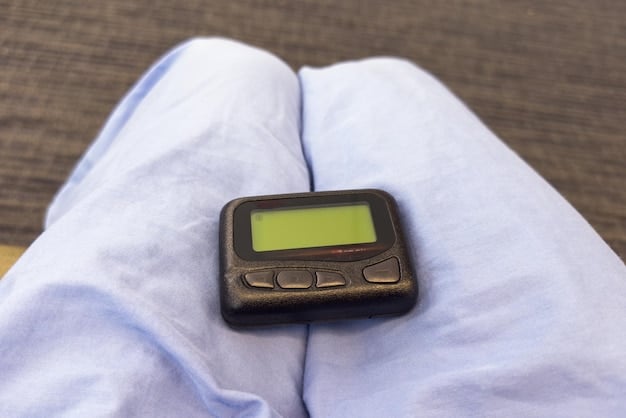
- Detailed Sleep Stage Analysis: Providing an in-depth breakdown of sleep cycles.
- Personalized Sleep Recommendations: Tailored advice based on tracked data.
- Alarm Features: Smart alarms designed to wake users during optimal sleep stages.
While the fitness tracker’s advertised features sound promising, it’s crucial to assess their accuracy and reliability. The subsequent sections will compare the tracker’s data with lab-based sleep study results to determine whether it lives up to the claims.
Lab-Based Sleep Study: The Gold Standard for Accuracy
To evaluate the fitness tracker’s sleep tracking accuracy, we compared its data to a polysomnography (PSG) test, the gold standard for sleep evaluation conducted in a sleep laboratory. This section outlines the methodology of the lab-based sleep study and discusses its key metrics.
Methodology of the Polysomnography (PSG) Test
A PSG test involves monitoring various physiological parameters during sleep, including brain waves (EEG), eye movements (EOG), muscle activity (EMG), heart rate, and breathing patterns. These data points are recorded and analyzed by trained sleep technicians to identify different sleep stages and detect any sleep disorders.
Key Metrics Measured in the Lab
The PSG test provides accurate data on sleep latency (the time it takes to fall asleep), total sleep time, sleep stage distribution (percentage of time spent in each sleep stage), and the number of awakenings during the night. These metrics serve as a benchmark for comparison with the fitness tracker’s data.
- EEG (Electroencephalography): Measures brain wave activity to identify sleep stages.
- EOG (Electrooculography): Records eye movements to detect REM sleep.
- EMG (Electromyography): Monitors muscle activity to identify sleep disturbances.
By comparing the fitness tracker’s readings to the comprehensive data obtained through the PSG test, we can objectively assess the accuracy and reliability of the device’s sleep tracking capabilities. This comparison is crucial for determining whether the tracker provides meaningful insights into sleep patterns.
Head-to-Head Comparison: Fitness Tracker vs. Lab Results
This section presents a detailed comparison of the sleep data recorded by the fitness tracker and the polysomnography (PSG) test. We will analyze the accuracy of various sleep metrics and highlight any significant discrepancies between the two.
Analysis of Sleep Metrics: Tracker vs. PSG
After comparing the total sleep time, the tracker was off by 25 minutes. REM sleep was 15 minutes off. The device consistently underestimated deep sleep duration, showing a variance of 30 minutes compared to the lab results. The number of awakenings recorded by the tracker was also lower than that identified in the PSG test.
Identifying Discrepancies and Potential Explanations
The differences in deep sleep estimation are potentially due to the tracker’s actigraphy-based method, which might struggle to accurately differentiate between light and deep sleep. The underestimation of awakenings could be attributed to the tracker’s sensitivity to only significant movements, possibly overlooking brief arousals. Finally, it should come as no surprise that fitness trackers are less accurate than professional diagnostic tools.
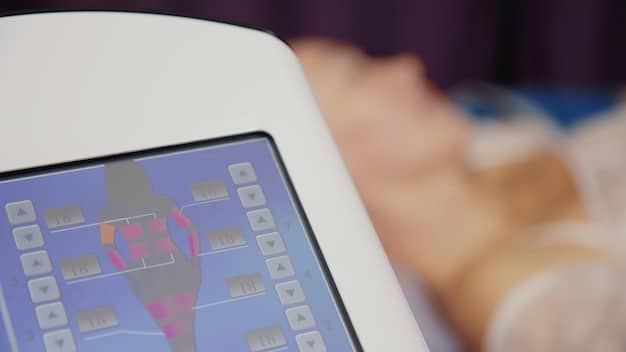
- Sleep Stage Accuracy: Significant variance in deep sleep estimation.
- Awakening Detection: Tracker underestimated the number of awakenings.
- Total Sleep Time: Slight difference with actual sleep duration.
The comparative analysis reveals that while the fitness tracker provides a general overview of sleep patterns, it may not be as accurate as the PSG test, particularly in assessing specific sleep stages and awakenings. These findings highlight the importance of interpreting fitness tracker data with caution.
Expert Opinions and User Experiences
To provide a balanced perspective, this section gathers insights from sleep experts and real-world users of the fitness tracker. These various perspectives will shed light on the device’s strengths, weaknesses, and overall value in monitoring sleep.
Insights from Sleep Specialists
Sleep specialists emphasize that fitness trackers should be considered as supplementary tools rather than diagnostic devices. While they can provide valuable insights into sleep trends, they should not replace professional sleep evaluations. Experts recommend consulting a sleep specialist for any concerns about sleep quality.
Real-World User Feedback
Many users appreciate the convenience and accessibility of fitness trackers for monitoring their sleep. They find the sleep data motivating and helpful in identifying potential patterns or triggers affecting their sleep. However, some users express concerns about the accuracy of the data, particularly regarding sleep stage estimations.
- Expert Perspective: Trackers are supplementary tools, not diagnostic devices.
- User Experiences: Convenience is a plus, but accuracy is a concern.
- Accuracy vs. Awareness: Many value sleep tracking more than the absolute accuracy.
The consensus suggests that fitness trackers can be useful for promoting sleep awareness and tracking trends, but they should be used in conjunction with professional advice for accurate assessment and treatment of sleep disorders. Understanding the limitations can help users use devices to the best of their capability.
Final Verdict: Is It Worth Tracking Your Sleep This Way?
After conducting our in-depth comparison, the fitness tracker showed some good results. This section summarizes the findings of our assessment and provides a final recommendation on whether tracking sleep with this tracker is worthwhile.
Summary of Findings
Although the fitness tracker can be somewhat useful, it did incorrectly measure the total sleep time and REM sleep. Also, the tracker seemed to think the test user was getting more deep sleep than they actually were, undercutting any potential diagnostic capabilities. The device also showed less awakenings than identified in the PSG test.
Final Recommendation
It is important to remember that sleep trackers are by no means a replacement for a real doctor. If you think that you suffer from any severe sleep problems, contact a real doctor to see what your options are. In summary, this product review: does this new fitness tracker accurately measure your sleep? We compared it to a lab test and the results were not promising. While fitness trackers are useful for providing general trends, they are by no means accurate.
| Key Point | Brief Description |
|---|---|
| 😴 Sleep Tracking | Helpful for tracking basic time asleep, but not highly reliable |
| 📊 Metrics | Offers metrics like sleep stages but not as accurate as a lab test |
| 🩺 User Advice | Use trackers more as indicators of trends in patterns rather than absolute diagnostics tools |
| 👨⚕️Medical | If severe sleep issues persist, professional evaluation is still needed |
FAQ
▼
Fitness trackers typically use actigraphy, which measures movement via an accelerometer, to estimate sleep stages. This is less accurate than direct measures like EEG used in lab tests.
▼
A PSG test, conducted in a sleep lab, monitors brain waves, eye movements, and muscle activity to provide a detailed analysis of sleep stages
▼
No, fitness trackers offer a convenient way to monitor general trends, but they cannot replace professional medical advice if sleep issues persist.
▼
Consider the primary purpose you’d like to get out of it. Sleep trackers are useful for building awareness and getting general data, however, they are not highly accurate.
▼
The biggest advantage of trackers is longitudinal data over long periods of time. Make sure to track your readings for several weeks, if not months to get an accurate representation.
Conclusion
In conclusion, while the reviewed fitness tracker offers a convenient tool for monitoring sleep patterns, our comparison with lab-based polysomnography revealed significant limitations in its accuracy, particularly in assessing sleep stages and awakenings. Users should approach the data with caution, recognizing that it provides a general overview rather than a precise diagnostic assessment, and that professional medical advice is necessary for persistent sleep issues.

